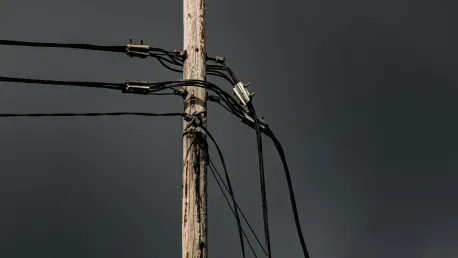In an era where expanding broadband access is crucial for economic growth and societal advancement, the relationship between pole owners and broadband providers has become a significant focal point. The Utilities Technology Council (UTC), a major utilities trade association, is calling on the Federal Communications Commission (FCC) to enhance cooperation between both parties. Brett Kilbourne, UTC’s Senior Vice President of Policy and General Counsel, has underscored that while pole replacements should not be viewed as barriers to broadband deployment, they do present logistical challenges that require negotiation-driven resolutions. This clarion call for enhanced cooperation comes at a time when friction over delays in pole attachments and high rates for these attachments has become a sore point between utilities and broadband providers.
Challenges in Pole Attachments
One of the primary points of contention in pole attachments is the delays associated with large pole orders, particularly orders that exceed 3,000 poles. According to the UTC, these delays are often a result of insufficient resources, such as a shortage of qualified contractors, which makes timely pole delivery a challenging endeavor. This is especially pertinent as the Broadband Equity, Access, and Deployment (BEAD) program, which has a funding allocation of $42.5 billion, anticipates a surge in demand for pole attachments. Consequently, delays are expected to persist, hampering the rapid deployment of broadband infrastructure. The UTC cautions against broadband providers resorting to “self-help remedies” or shortcuts that could potentially compromise safety and reliability. Despite these challenges, the UTC does express an openness to “one-touch make ready” policies, which would allow internet service providers (ISPs) to prepare the poles for use if the utilities cannot meet project timelines efficiently.The need for efficient resource use is another critical issue highlighted by the UTC. Optimizing existing space on poles can greatly enhance the speed and cost-efficiency of broadband deployment. The association argues that utilities are steadfast in their commitment to bridging the digital divide by providing fair and reasonable terms for pole attachments. This commitment is demonstrated by utilities’ endeavors to streamline resource allocation and ensure that cooperation occurs in good faith. However, the underlying friction and logistical challenges underscore the necessity for the FCC to play a more active role in mediating and facilitating this cooperation.
Regulatory Needs and Solutions
Industry leaders within the broadband sector have been vocal in criticizing the FCC for its perceived failure to establish required timelines for large pole orders. These delays, they argue, are detrimental to the efficient rollout of critical broadband infrastructure. In response to these criticisms, the UTC reiterates that a negotiation-led approach is probably the most sustainable and effective way to handle pole attachment issues. By fostering dialogue and cooperation, both utilities and broadband providers can find common ground that benefits all stakeholders. Experts within the industry believe that the FCC must adopt a more proactive stance to create a regulatory framework that promotes quicker and fairer pole attachments.This push for regulatory reforms is not just about resolving existing conflicts; it is about paving the way for future advancements in digital infrastructure. The ongoing projects funded by the BEAD program will only amplify the existing demands and challenges in pole attachments. Without an effective regulatory framework, these challenges could stymie the progress needed to enhance broadband access nationwide. The UTC’s advocacy for negotiation-driven solutions, combined with a call for the FCC to set clear timelines, is aimed at ensuring that the surge in broadband deployment can proceed without unnecessary hindrances.
Commitment to Expanding Broadband Access
Industry leaders in the broadband sector have expressed frustration with the FCC for not setting definitive timelines for large pole orders, which they believe hampers the swift deployment of essential broadband infrastructure. In response, the UTC emphasizes that a negotiation-based approach is likely the most sustainable and effective solution to pole attachment issues. By encouraging dialogue and collaboration, utilities and broadband providers can reach mutually beneficial agreements. Industry experts argue that the FCC needs a more proactive role in developing a regulatory framework that ensures quicker and fairer pole attachments.This advocacy for regulatory reform is not just about solving current disputes; it’s about preparing for future advancements in digital infrastructure. Projects funded by the BEAD program will escalate demands and challenges related to pole attachments. Without a robust regulatory framework, these challenges could impede nationwide broadband access. The UTC’s push for negotiation-driven solutions, along with urging the FCC to establish clear timelines, aims to ensure a smooth and unhindered expansion of broadband deployment across the country.









